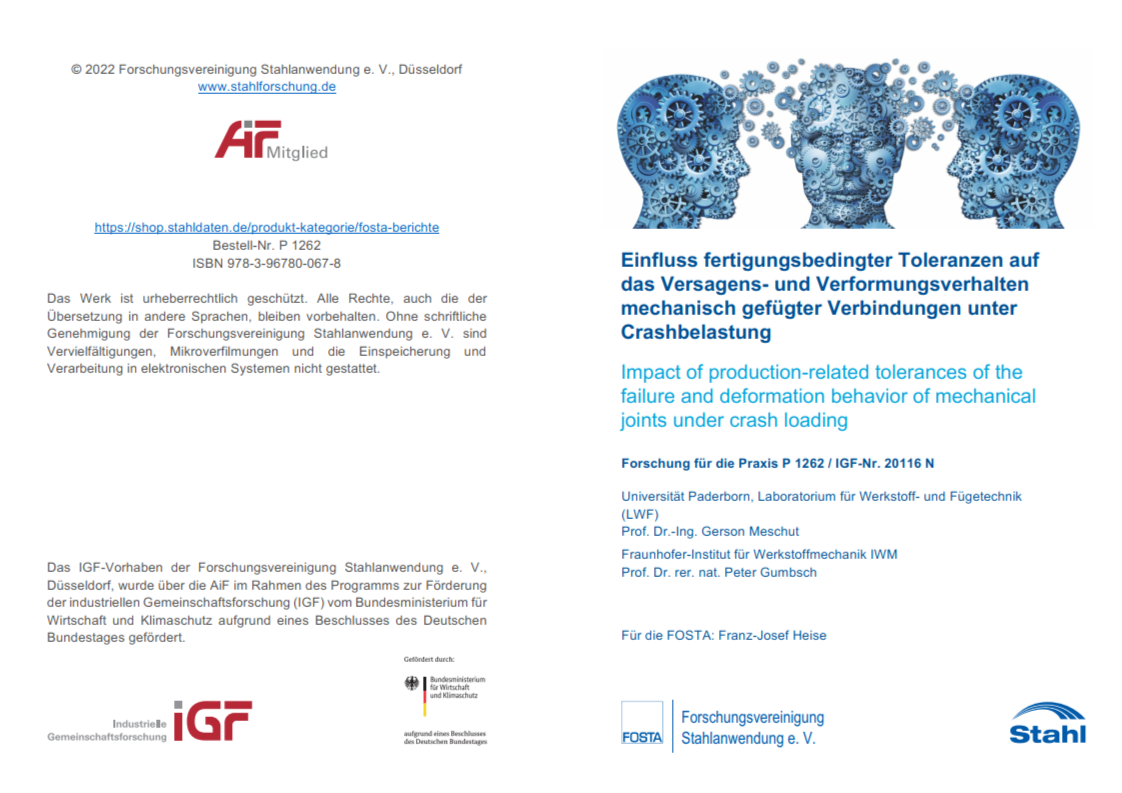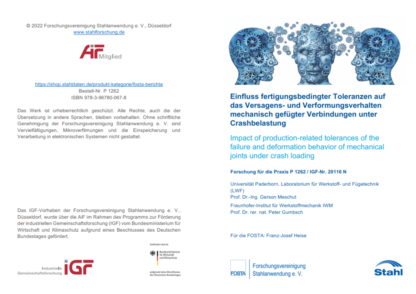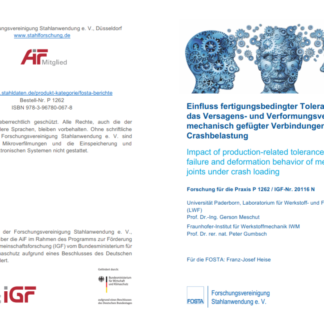Description
P 1262 – Impact of production-related tolerances of the failure and deformation behavior of mechanical joints under crash loading
Mechanical joining techniques are getting increasingly important in the manufacturing of modern car bodies. Compared to the conventional thermal joining techniques such as the spot welding, mechanical joining techniques can be used to join a broad spectrum of different materials. The construction with mixed materials offers an effective way to reduce the full body weight especially against the background of the increasing demand for resource-saving complete vehicles. Mechanical joining process are normally used in a fully automated manner, therefore tolerances in the characteristics of a joint can occur. These tolerances can have an influence on the load bearing capacity and failure behavior of the joint. Subject of this project is the experimental and numerical investigation of the influence of manufacturing flaws on the load bearing capacity and failure behavior of mechanical joints. A methodology has been developed with which it is possible to integrate the observed influence of manufacturing flaws in the crash simulation of vehicle structures.
Different manufacturing influences (rivet length, rivet head end position, orthogonality, lateral offset and flange overlap) were investigated for several joining processes (semitubular self-piercing riveting, bolt setting and flow drill screwing). Therefore corresponding joints taking the manufacturing flaws into account have been manufactured. Subsequently the effect of these manufacturing flaws on the load bearing capacity and the failure behavior of the joint has been investigated with LWFKS-2-specimens. The results of the single joint specimens have been validated based on component tests which have been performed with a t-joint specimen tested under lateral and transversal load. Additional to the experimental results numerical simulations of the joining process have been conducted for other variations of the investigated manufacturing flaws. Based on the results of these process simulations the load bearing capacity of these virtual joints has been investigated with detailed models. Based on the experimental and numerical results functional correlations between the manufacturing flaws and the load bearing capacity and failure behavior of the joint have been developed. These functional correlations where used to integrate the influence of manufacturing flaws within the substitute modelling of joints in the form of reduction factors. The developed methodology has been validate for more complex load cases by simulation of the component tests.
The results of this project can be used to judge the influence of manufacturing flaws on the load bearing capacity and the failure behavior of joints within the construction of car body components and the impact they have on the crash performance of the whole structural part.
Published in:
2022
Authors:
Prof. Dr.-Ing. G. Meschut, Prof. Dr. rer. nat. P. Gumbsch




